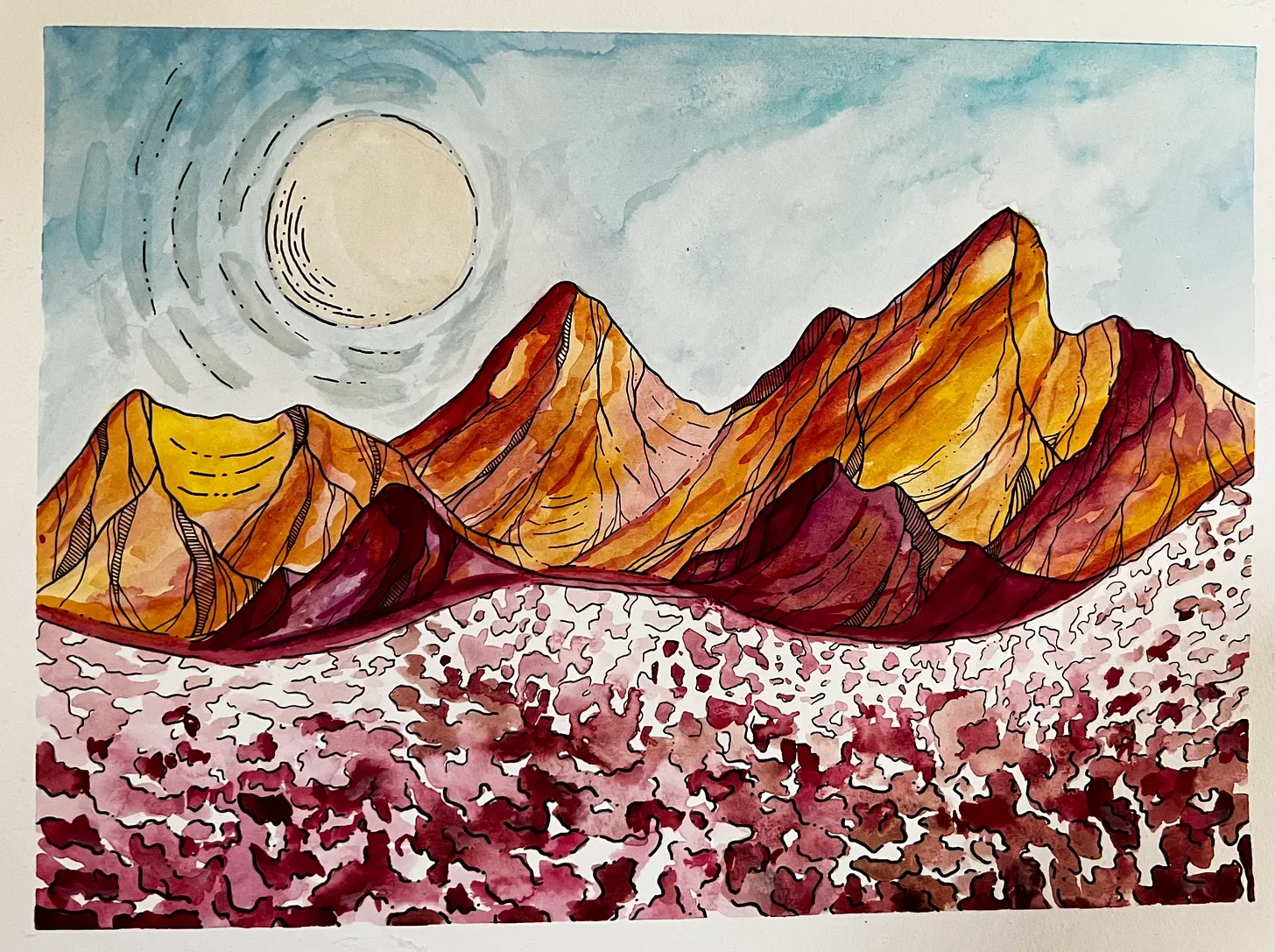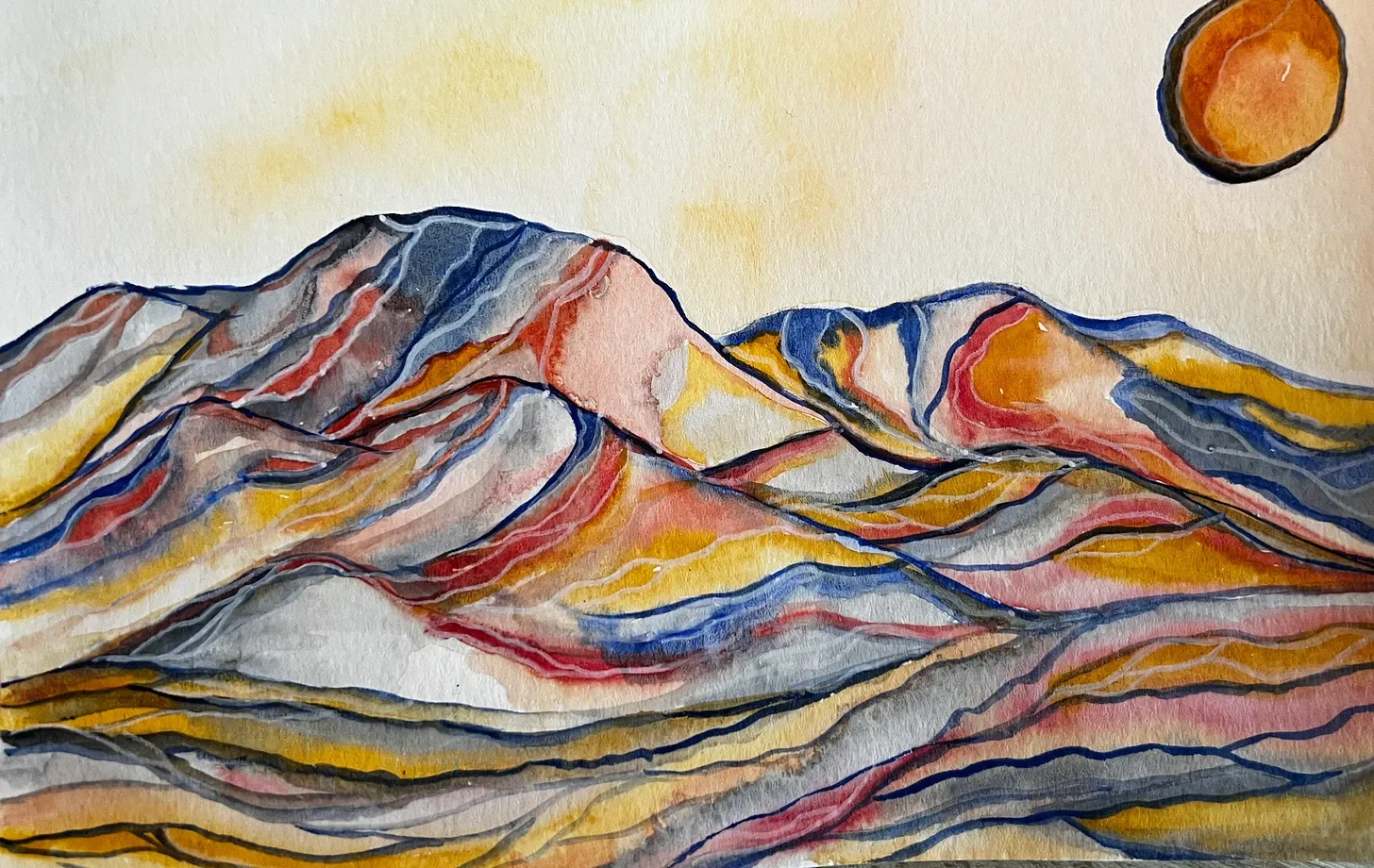The Opposite Of Faith Isn’t Doubt
The Pope has his own astronomer. Did you know that? Have you ever heard anything more delightful in your whole ding-dong life?
The Pope employs someone—a team of someones, actually—to look up into the night sky and see what they can see.
Am I the only one absolutely smitten by that fact?
Maybe it’s because space and the universe and the cosmos and galaxies and particles and waves and black holes and event horizons all give me the tinglies that remind me that this email or that comment fundamentally do not matter—and what a relief!
Maybe it’s because Catholicism has often given me a naval-gazing kinda vibe and I like knowing someone in that order is tasked with looking up.
And maybe too it is because faith and I have a tricky relationship. I’m not talking about religious faith (that in itself warrants an entire essay), but rather the kind of faith that whispers, “Hey dummy, it’s all going to work out.”
It would be easy to claim the voice of faith doesn’t speak to me very often, but the truth is that my internal monologue (running since 1993, baby!) is so, SO loud that the quiet voice of faith can barely break through. I’m sure it’s somewhere in the background din, but I’ve done a hell of a job tuning my frequencies to Anxiety and Worry Radio instead.
Which is probably why I felt like a sloppy mess of a puddle when I read that Guy Consolmagno, the director of the Vatican’s observatory, once told an audience in Glasgow: The opposite of faith isn’t doubt, it’s certainty.
Man’s Search for Meaning Certainty
A couple of nights ago, I made a comment to some horse friends that I thought it was interesting that I hadn’t met anyone else in the Valley with a gray horse.
“Well, yeah,” my friend said. “No one wants to deal with the melanoma.”
“What?” I asked.
“Gray horses are super prone to getting melanoma,” she said.
“Oh,” I said, feeling suddenly very stupid. “I guess I’ll have to keep a close eye on Tex then.”
Once she left, I spiraled. I Googled everything I could about gray horse melanomas, kicking myself for not knowing this very obvious thing in the horse world that everyone else seemed to know.
I learned that there’s something about the gray color gene that predisposes gray horses (of any breed) to melanoma. Around 80% of them over the age of 15 develop at least one. Some are so prone they’re BORN with them. (Though most are benign and don’t become metastatic. They’re typically manageable—surgically removed or broken up with laser treatments.)
Still, I lost a night of sleep over it. The certainty I had about my horse being healthy and sound? Gone.
I crave certainty. It is a delicious, padded cocoon of temptation that promises the sweet relief of never having to feel uncomfortable ever again. Which is why certainty has become the relentless, pounding, insufferable, singular desire of my life.
I want certainty that Tex is going to live forever. That I’m not going to lose my job. That I’m not going to lose my housing (why renting is so stressful for me). I want to be certain that I’m never going to run out of money and that no one is mad at me.
I’ve been on a hunt for certainty all my life, meanwhile, faith has just been hanging out nearby, waving me down, yelling, “Hi butthead! I’m here to help! Fucking listen to me!”
But I Want Proof!
I am not a religious person. I don’t think I believe in a god, per se (especially not some kind of humanized man-god as modern Christianity describes it) but I also don’t NOT believe that something else beyond our comprehension might be going on out there.
I’ve been thinking about the English astronomer Fred Hoyle—an atheist who strongly supported the Steady State theory, a cosmological model that suggests the universe has just always existed. No Big Bang. Which means no “beginning.” Which, in turn, avoids the pesky implication of some higher power setting it all in motion. AKA: CERTAINTY.
But Hoyle later discovered how the universe makes carbon. (Let’s just say, for simplicity’s sake, that it’s highly improbable for carbon to form at all.) Considering we are carbon-based lifeforms, this discovery shifted his beliefs.
“A common-sense interpretation of the facts suggest that a super-intellect has monkeyed with physics, as well as with chemistry and biology, and that there are no blind forces worth speaking about in nature. The numbers one calculates from the facts seem to me so overwhelming as to put this conclusion almost beyond question.”
This statement ultimately cost him the 1983 Nobel Prize.*
But, it’s a prime example of how doubt creates fertile ground for faith. When proof falls away, or simply isn’t sufficient, that’s when faith can step in.
And that doesn’t have to mean faith in a higher power. It can mean faith in the mystery itself. Faith that there’s more happening between the little atoms of our existence than we could ever comprehend.
Maybe our endless quest for proof—just so we can feel certain—is actually more absurd than faith itself.
I mean, what sounds sillier: Endlessly demanding PROOF that everything is going to be okay before allowing yourself to feel okay, or having faith that it’s all going to be okay and just…being okay?
A Universe Full of Maybes
If I had my own astronomer, I’d want that person looking up at the night sky, coming back to me regularly with new doubts and new opportunities for faith.
I’d want them to discard their certainty and bring to me instead this idea that Paul Hawken raises in his new book Carbon:
“The chances of the universe creating the resonance and alignments conducive to the orchestra of life are calculated by physicists to be virtually incalculable. And yet here we are, me writing, and you reading.”
*Check out Paul Hawken’s book Carbon for more about this. Highly recommend!


